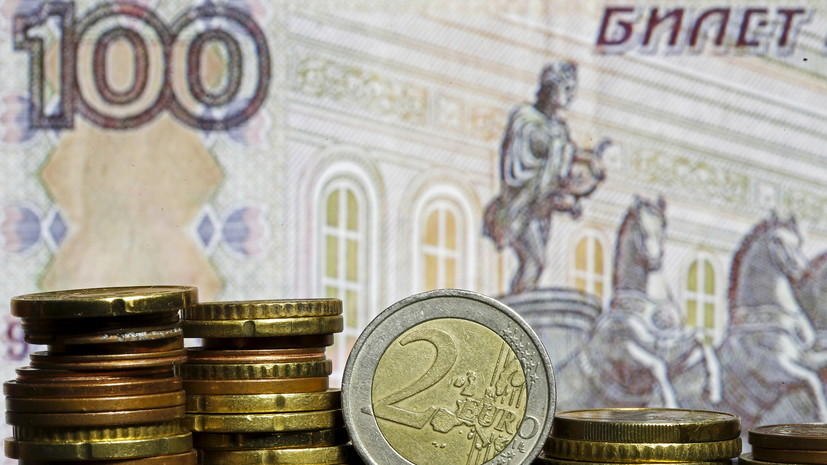On Friday, July 17, the Russian currency shows a weakening on the Moscow Exchange. In the middle of the day, the euro rose by 0.7% and for the first time since May 4 reached 82.09 rubles. At the same time, the dollar rose by 0.5% to 71.89 rubles.
The official exchange rate of the Central Bank as of July 18 is set at 71.71 rubles per dollar and 81.68 rubles per euro.
According to RT analysts interviewed, pressure on the Russian currency was exerted by a deterioration in sentiment in the international financial market. Thus, global investors fear the consequences of the second wave of the coronavirus pandemic for the global economy and are massively selling risky assets, including the ruble. According to Johns Hopkins University, since the beginning of July, the number of cases of COVID-19 in the world has increased by more than 3 million and currently exceeds 13.8 million.
“General market sentiment remains highly volatile. “Viral” issues cause anxiety among investors. In addition, smoldering tensions between the US and China are alarming players, ”said Alexander Bakhtin, investment strategist at BCS Premier, to RT.
July 15, the United States announced the introduction of visa restrictions for employees of Chinese technology companies. Washington also announced plans to take action within a few weeks with respect to the Chinese TikTok application and WeChat social network, which are allegedly used by Beijing to obtain personal data of Americans.
At the same time, US President Donald Trump said he was not interested in continuing trade negotiations with China, and accused the Asian Republic of the global spread of COVID-19. Note that earlier the head of the White House did not rule out the possibility of introducing additional duties on Chinese goods for allegedly untimely informing the PRC of the world community about the appearance of coronavirus.
“At the moment, China and the United States want to gain leadership in the technology market, so they impose sanctions under the cover of political problems. As a result, states are once again entering the phase of an acute trade war, ”said Ilya Zaporizhsky, an expert at the Academy of Financial and Investment Management.
According to analysts, the Russian currency to some extent reacted to the adjustment of oil prices. On Friday, the cost of raw materials of the reference brand Brent on the ICE exchange in London was reduced by 1% - to $ 42.9 per barrel.
At the same time, Natalia Milchakova, deputy head of the Alpari information and analytical center, told RT that at the moment there are no signs of panic in the global energy market, so there is no possibility of a sharp collapse in oil prices. Against this background, the expert considers it possible to increase quotations to $ 45 per barrel in a month, which should positively affect the dynamics of the ruble.
Moreover, before the end of summer, support for the national currency may be provided by the restoration of the Russian economy, Milchakova said. According to the Bank of Russia, as a result of the coronavirus pandemic in the second quarter of 2020, the country's GDP fell by 9.5-10%. At the same time, according to the regulator’s assessment, already in the third quarter, an “economic return to the growth path” is expected.
“The reasons for the observed weakening of the national currency are largely short-term and purely speculative. In the medium and long term, it is necessary to wait for the results of the Russian economy in July and August. Then it will be possible to notice a more significant improvement in affairs in the country. This should have a positive impact on the ruble, ”explained Natalia Milchakova.
Moreover, the Bank of Russia is still providing some support to the ruble, experts admit. Recall, in order to stabilize the exchange rate, on March 10, the regulator began proactive sale of foreign currency on the domestic market. Thus, the Central Bank artificially increases the demand for rubles. In total, during this time, the volume of currency sales exceeded 1 trillion rubles.
In general, according to Alexander Bakhtin, in the near future the euro exchange rate on the Moscow Exchange will fluctuate in the range of 81.8-83 rubles. However, by the beginning of autumn, the Russian currency may appreciably strengthen against the European and American ones. This point of view in an interview with RT was expressed by the director of the management company Sputnik - capital management Alexander Losev.
“According to our forecasts, before the end of summer, the euro may return to around 79 rubles due to the recovery of the commodity market and positive macroeconomic statistics of Russia. The dollar exchange rate may drop to the level of 68–69 rubles, ”the expert concluded.

